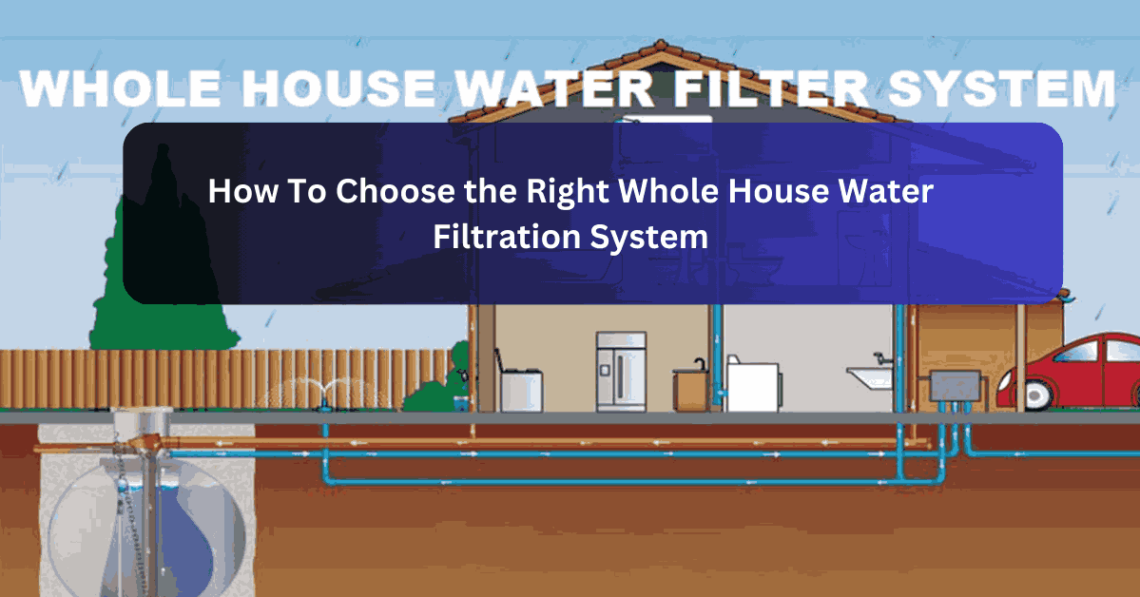
How To Choose the Right Whole House Water Filtration System
A whole house water filtration system can be a valuable investment for residential homes. These systems are designed to protect your appliances and plumbing from damage due to hard water or contaminants.
They also help improve the quality of your drinking water, reducing the risk of exposure to various chemicals. Here are some tips for choosing the right whole house water purification system for your home:
Choose a Filter Type
When choosing a whole house water filtration system, consider the type of filter you want. There are different types of filters available, such as sediment filters, activated carbon filters, and reverse osmosis filters. Sediment filters are designed to remove larger particles like sand, silt, and debris from your water.
This type of filter is suitable for well water or municipal water with high sediment levels. Activated carbon filters remove chlorine, volatile organic compounds (VOCs), and other chemicals from your water. Reverse osmosis filters use a semipermeable membrane to remove impurities from your water.
Consider the Flow Rate
The flow rate of your household’s water supply and appliances refers to how much water can pass through at a given time. It is usually measured in gallons per minute (GPM) and may affect the performance of your filters.
A higher flow rate can mean more water passes through, decreasing the contact time between the water and the filter.
This may reduce the effectiveness of filtration and may result in impurities passing through. Choose a water filtration system that matches your home’s flow rate for more effective contaminant removal.
Determine the Filter Size
A large filter has a greater surface area for filtering more water. Consider your household’s water usage patterns.
If you have a high water demand, you may need larger filters or multiple filter stages to accommodate the flow rate and maintain effective filtration during peak usage times.
Water treatment professionals can analyze your water quality and recommend a filtration system with appropriate filter sizes.
Consider Installation and Maintenance
Before purchasing a water filter for your home, consider the installation and maintenance process. The installation cost may depend on the type of filter and your home’s plumbing system.
If you have specialized plumbing, a professional may be needed for installation for proper connection and functionality. Some filters are designed for easy installation and can be done without the help of a professional.
Consider the ongoing maintenance required for the filter. Some filters require frequent replacement of cartridges or other parts to maintain proper filtration.
Look For Testing or Certifications
When purchasing a water filter, look for testing or certifications from reputable organizations. These third-party certifications help verify that the filter has been tested and proven to remove impurities from the water supply.
Some standard certifications include the National Sanitation Foundation (NSF), Water Quality Association (WQA), and Underwriters Laboratories (UL).
Some filters may undergo additional testing for specific contaminants, such as lead or bacteria. Compare different filters to find one certified for the specific impurities in your water supply.
Invest in a Whole House Water Filtration System
Choosing a suitable whole house water filtration system can help promote clean and safe drinking water. Consider factors such as your water quality, household size, flow rate, and maintenance requirements to determine the best option for your home. Contact a reputable water purification company to find a product that matches your home’s water type and filtration needs.
You May Also Like

Can I Get X-Rays at a Pain Management Clinic?
June 15, 2023
Workforce Optimization Software Eleveo
December 20, 2023
